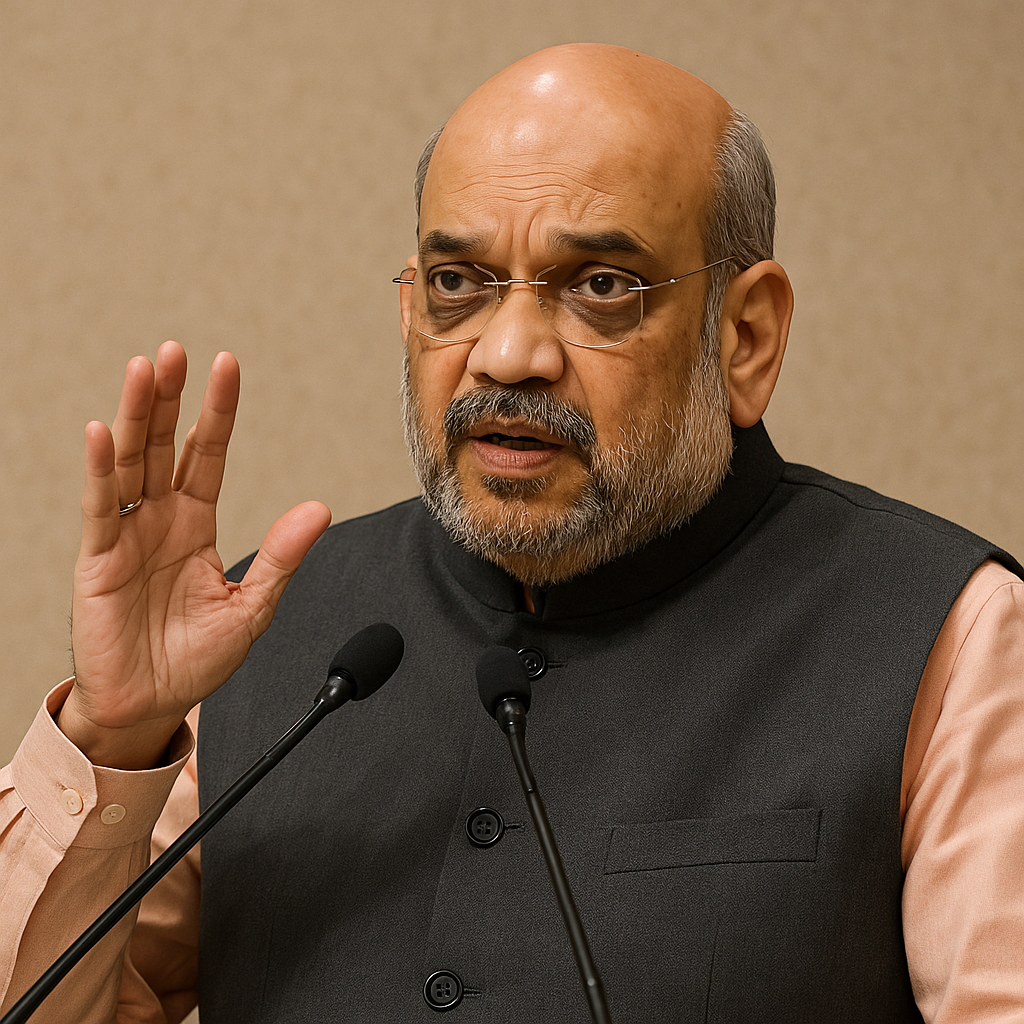Amit Shah Launches Cooperative Dialogue, Bats for Digital PACS, Dairy Reform
Highlighting the backbone of India’s cooperative movement, Shah emphasized the revitalization of Primary Agricultural Credit Societies (PACS) through digital inclusion and service diversification.

- Country:
- India
Union Home Minister and Minister of Cooperation Shri Amit Shah led an extensive interactive session titled ‘Sahkar Samvad’ with women from the cooperative sectors of Gujarat, Madhya Pradesh, and Rajasthan, reaffirming the government’s commitment to cooperative empowerment, rural economic development, and natural farming. The event was organized in observance of the International Year of Cooperatives 2025, highlighting India’s grassroots efforts to strengthen its cooperative economy through reforms, inclusivity, and innovation.
Honouring a Pioneer: Tribhuvan Sahkari University in Anand
In a significant announcement, Shri Shah laid the foundation stone of “Tribhuvan” Sahkari University in Gujarat’s Anand district, honouring Tribhuvandas Patel, the visionary behind India’s cooperative dairy revolution and the first chairman of Amul.
“Tribhuvandas Ji never promoted himself, only the movement,” said Shah. “Yet, today, 36 lakh women in Gujarat are running businesses worth Rs 80,000 crore because of his vision.”
He noted that naming the university after Tribhuvandas, despite opposition, was a rightful tribute. The university will focus on producing skilled professionals for the cooperative sector, offering specialized training in cooperative management, governance, and innovation.
Dairy Cooperatives: From Milk to Cow Dung Economy
Shri Shah unveiled ambitious plans to revolutionize cooperative dairies across India. Future reforms will focus on:
-
Utilising cow dung for organic manure and biogas
-
Health management, nutrition, and vaccination of dairy animals
-
Integrating 400 out of 500 village dairy families into cooperatives
-
Sharing best practices from small-scale innovations nationwide
“In the next six months, we will finalize a model where cooperatives manage milk, manure, and veterinary health under one system,” he said.
These plans also aim to reduce input costs, boost farmer incomes, and create rural circular economies rooted in sustainability.
Modernising PACS: From Jan Aushadhi to Digital Finance
Highlighting the backbone of India’s cooperative movement, Shah emphasized the revitalization of Primary Agricultural Credit Societies (PACS) through digital inclusion and service diversification.
Key updates include:
-
Linking PACS to CSC services, Micro ATMs, Bank Mitras, and Har Ghar Nal Yojana
-
Enabling Jan Aushadhi Kendras within PACS to offer affordable medicines
-
Promoting awareness campaigns to help villagers benefit from PACS-based services
-
Training District Cooperative Bank inspectors on updated by-laws
He encouraged PACS to adopt new income-generating models and urged community engagement to ensure that these reforms reach the grassroots.
Natural Farming: A Healthier Path to Productivity
Amit Shah passionately endorsed natural farming, calling it a scientific alternative to chemical agriculture. Citing personal experience, he shared that his own farm saw a 1.5x increase in yield after adopting natural methods.
“Urea and DAP factories do the same job that earthworms can do in a natural system. The result is healthier food, improved soil quality, and water conservation,” he said.
The Ministry of Cooperation has already established:
-
A national-level cooperative to procure produce from natural farming
-
A dedicated cooperative for exporting such crops, ensuring direct profits to farmers
Digital Push: NCCF App for MSP on Maize and Pulses
The Minister urged farmers to register on the NCCF app, which now links them to procurement channels for maize and pulses at Minimum Support Prices (MSP). Farmers will retain the flexibility to sell on open markets if higher prices are available.
“This is how technology empowers farmers with choices and price security,” Shah said.
Camel Milk Innovation: Research and Support for Camel Herders
In a nod to Rajasthan and Gujarat’s pastoral communities, Shri Shah announced that both state governments would soon launch a joint camel milk initiative. This includes:
-
Research on medicinal properties of camel milk
-
Efforts to ensure fair prices for camel herders
-
Initiatives to boost camel rearing and conserve native breeds
He noted that improving the economic value of camel milk could revitalize desert economies and protect endangered livestock traditions.
Expanding Dialogue: More Chaupals Across India
Shah concluded by announcing plans to host 10 more ‘Sahkar Chaupals’, with each session covering three states, making it a nationwide listening and policy feedback campaign. He reaffirmed his belief in the Ministry of Cooperation as a more impactful role than even the Home Ministry.
“This ministry touches the lives of the poor, farmers, women, and even animals. It’s a ministry of compassion, unity, and self-reliance,” he said.
A Call to Action
In a symbolic gesture, Shah encouraged every milk mandi and cooperative society to display portraits of Tribhuvandas Patel, to educate the youth and honour the legacy of India's cooperative movement.
He also appealed to stakeholders across PACS, dairy, agriculture, and healthcare to embrace digitisation, collaborative governance, and sustainable practices as a path toward inclusive economic empowerment.
ALSO READ
Cyber Fraud Bust: Gujarat and Maharashtra Raids Expose Massive Money Laundering Scheme
ED raids in Gujarat, Maharashtra in over Rs 100 crore worth cyber crime linked money laundering case: Sources.
Gold Heist Foiled: Trio Arrested in Gujarat
A New Political Dawn: AAP's Strategic Wins in Punjab and Gujarat
Advanced Tech and AI to Safeguard Gujarat’s 148th Jagannath Yatra










